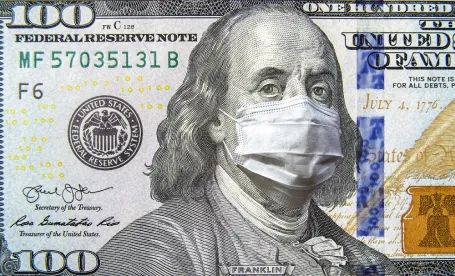About 90 million people have received their third wave of stimulus checks, according to a joint letter by the Internal Revenue Service and the Social Security Administration, and many still await help. Immigrants who are desperate for relief will not receive any aid due to their undocumented status.
Undocumented Immigrants Struggle Without Aid
The United States has approximately 7 million working undocumented immigrants making up 4.4% of the workforce, as reported by the 2020 Center for American Progress report. Undocumented immigrants do not qualify for unemployment benefits. Unfortunately, it is not just the undocumented immigrants who suffer, but also mixed-status families, including approximately 16.7 million people in America who have at least one undocumented family member living with them. Citizens or DACA recipients who file taxes with a family member who has no social security number have also been denied stimulus payments.
Rosa Arevalo immigrated to the United States and works as a restaurant cook. She was diagnosed with breast cancer in 2018. She used to work 12 hours a day and continued working the same hours until the pandemic began. “I’ve been asking for food from places. I asked at churches for food. My husband has some hours at work, and I started paying rent in, little chunks … and there’s been nothing. There’s been nothing to help.” Arevalo told ABC News.
“Everything is really hard because of immigration status for me,” Arevalo said. “It’s hard to qualify for things without immigration status. Especially for people like me who need cancer treatment. We don’t have things because we are without status.”
Arevalo is just one of the undocumented workers who work in the United States and have received no aid during the pandemic. They have struggled to make ends meet. Such families have turned to immigration advocacy groups such as CASA for help. CASA serves over 100,000 members and has provided them with financial aid and food assistance.
The Coronavirus Aid, Relief, and Economic Securities (CARES) Act
Initially, the CARES Act did not aid undocumented immigrants or people living in mixed-status families. This prevented DACA recipients, some legal permanent residents, and some American citizens from receiving aid. Mixed-status families were included in the second wave of the stimulus package passed in December.
Georgetown Law University Center and Villanova University’s School of Law filed a class-action lawsuit that is still pending, challenging the children of mixed-status families being left out of the CARES Act. “They didn’t receive [benefits] because of who their parents are,” said Jossie Flor Sapunar, communications director at CASA. “If the law says you are to receive $600 if you’re a dependent U.S. child, then that is what you’re supposed to receive, no matter who your parents are.”
A Congressional Budget Office report indicated that 6 million undocumented immigrants pay their taxes regularly each year. “Immigrants are paying into a system that doesn’t provide any safety net for them. And the prime example of that is all of the stimulus relief checks,” Sapunar said.
Biden’s COVID-19 Relief Bill – American Rescue Plan
American Rescue Plan, which is Biden’s COVID-19 relief bill, was passed in March for 1.9 trillion dollars. An amendment vote was taken last month, and aid for undocumented immigrants resulted in a split vote. A total of 58 senators, including eight Democrats, voted against including undocumented immigrants in the bill.
Biden’s American Rescue Plan provides at least some relief to undocumented immigrants. Couples filing their income taxes jointly will need only one Social Security number to be eligible to receive a stimulus check.
California, Colorado, and Maryland have passed new legislation allowing many to earn an income tax credit. The new legislation allows low-income non-citizens, including undocumented immigrants, to earn tax credits.



 />i
/>i
